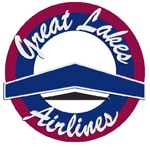BOSTON – The U.S. Department of Labor has ordered Pan Am Railways Inc. to pay $50,000 in compensatory and punitive damages, as well as take corrective action, on behalf of an injured worker. The North Billerica-based commercial railroad adversely charged the worker with lying when he filed a Federal Railroad Safety Act complaint with the department’s Occupational Safety and Health Administration.
The employee, who works in a rail yard in Waterville, Maine, filed an OSHA complaint on Dec. 6, 2011, claiming that the railroad had subjected him to disciplinary action earlier, including a letter of reprimand, for reporting an injury and unsafe working conditions. Shortly after the filing, Pan Am Railways held a second disciplinary hearing on Jan. 4, 2012. It alleged that the worker made false statements to OSHA and the railroad.
OSHA found that the employee engaged in protected activity when filing the complaint, and the railroad took retaliatory action by charging him with lying and by holding the second disciplinary hearing. Such adverse action can intimidate employees from exercising their FRSA rights, even if the charge is later dropped, as it was in this case.
“Employers must understand that their employees have a legal right to file a whistle-blower complaint with OSHA without fear of retaliation,” said Marthe Kent, OSHA’s New England regional administrator. “Responding to an employee’s complaint with threats of disciplinary action is not acceptable and prohibited by law.”
In addition to the compensatory and punitive damages, OSHA has ordered Pan Am Railways Inc. to expunge all files and computerized data systems of disciplinary actions and references to the hearing notice and the January trial. The company must also post a notice to employees about its FRSA whistle-blower rights at all its Maine locations and on its internal website and provide all employees with copies of training materials related to FRSA. Finally, the company must pay reasonable attorney’s fees and compensate the employee for wages and benefits that were lost due to his attending the January disciplinary hearing.
OSHA enforces the whistle-blower provisions of the FRSA and 21 other statutes protecting employees who report violations of various airline, commercial motor carrier, consumer product, environmental, financial reform, food safety, health care reform, nuclear, pipeline, public transportation agency, maritime and securities laws.
Under these laws enacted by Congress, employers are prohibited from retaliating against employees who raise various protected concerns or provide protected information to the employer or to the government. Employees who believe that they have been retaliated against for engaging in protected conduct may file a complaint with the secretary of labor for an investigation by OSHA’s Whistle-blower Protection Program. Detailed employee rights information is available online at http://www.whistleblowers.gov.
Under the Occupational Safety and Health Act of 1970, employers are responsible for providing safe and healthful workplaces for their employees. OSHA’s role is to ensure these conditions for America’s working men and women by setting and enforcing standards, and providing training, education and assistance. For more information, visit http://www.osha.gov.
 TELLURIDE, Colo. – A small passenger airplane skidded to a halt on the Telluride Regional Airport runway on Sunday afternoon after part of its landing gear failed, but no injuries were reported.
TELLURIDE, Colo. – A small passenger airplane skidded to a halt on the Telluride Regional Airport runway on Sunday afternoon after part of its landing gear failed, but no injuries were reported.